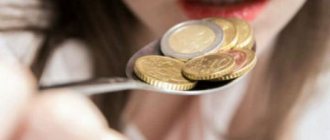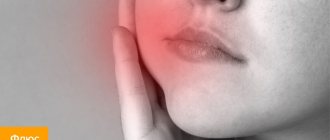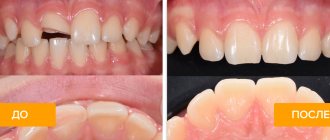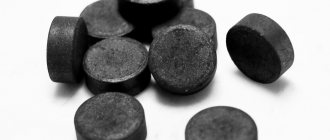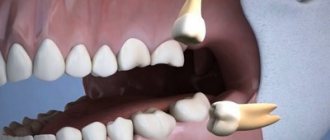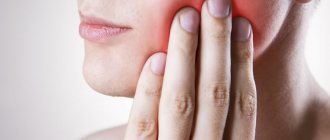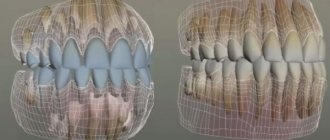How does a bitter taste in the mouth occur?
The taste in your mouth doesn't have to be overtly bitter; it can feel metallic, sour, or just plain unpleasant. Usually its appearance is associated with certain conditions:
- immediately after eating (if you overeat or eat certain foods);
- after taking medications, especially if a person takes them on an empty stomach;
- after physical activity;
- immediately after waking up.
Bitterness is felt as a foreign, strong, unpleasant taste that comes from the oropharynx or has no obvious source. It may be part of a symptom complex. Along with a bitter taste, the following may appear:
- heaviness in the side;
- abdominal pain;
- white coating on the tongue;
- nausea, vomiting;
- heartburn;
- belching;
- dry mouth or, on the contrary, excessive salivation;
- dizziness;
- bloating;
- bleeding gums;
- cold symptoms (sore throat, cough, fever, weakness);
- decreased appetite;
- deterioration of smell and other symptoms.
By exactly when bitterness appears and what other symptoms arise, one can judge the causes of the condition. To make a diagnosis, you need to see a doctor and describe to him in detail how you feel.
Which doctor treats bitterness in the mouth?
First of all, bitterness in the mouth is considered as a symptom of gastroenterological disorders, so when the first signs appear, you need to make an appointment with a gastroenterologist.
To make an appointment with a doctor, choose any method:
- call the clinic +7 (495) 103-99-55,
- order a call back,
- leave a request for an appointment using a convenient form on the website:
Often people do not pay attention to bitterness in the mouth, explaining the occurrence of the symptom with overeating, an uncomfortable position in bed and some other reasons.
IMPORTANT! Rarely does anyone think that bitterness in the mouth is a signal indicating the development of serious pathology of the liver and gastrointestinal tract.
If you have been experiencing this symptom for a long time, do not engage in self-diagnosis and self-medication - make an appointment with a specialist at the Kuntsevo Treatment and Rehabilitation Center! An experienced gastroenterologist will collect anamnesis, complaints, conduct an objective examination, and refer you for laboratory and instrumental diagnostics to understand the cause of the pathology.
SIGN UP
Causes of bitter taste in mouth
Bitterness in the mouth can appear due to diseases of the digestive system, teeth and gums, due to changes in hormonal levels, taking certain medications and for other reasons (Fig. 1). At the same time, the accompanying symptoms and conditions under which a person feels a bitter taste in the mouth will be different.
Figure 1. Some causes of bitterness in the mouth. Source: MedPortal
Poor quality food
Foods cooked with a lot of oil, fat or burnt can cause a bitter taste in the mouth. Sometimes the bitter taste is associated with drinking black coffee or very strong tea. It can also appear if a person has eaten sunflower seeds or nuts. The bitterness will go away if you drink cool water, but a slight unpleasant aftertaste may persist for a while. If the bitter taste comes from food, there will be no other symptoms (pain, indigestion).
Age-related changes
With age, a person's taste perception gradually changes. Older people are less able to discern tastes, but may still experience bitterness. This is associated with a number of other health changes, for example, decreased saliva production, dry mucous membranes, and a gradual deterioration in oral health.
Smoking
If a person smokes frequently, they perceive the taste of food less well, and this can increase the bitter taste in the mouth. Also, bitterness in the mouth of smokers may be associated with the taste and smell of tobacco smoke. The resins contained in it linger on the mucous membrane of the oral cavity and settle on the surface of the tooth enamel. This is the cause of bad breath, deteriorating dental health and the associated persistent bitter taste. You can beat it with chewing gum or mints, but it is better to quit smoking or at least reduce the number of cigarettes you smoke.
Pregnancy
In the first trimester, bitterness in the mouth may appear along with other symptoms of toxicosis. It usually worsens with nausea or after vomiting. Fluctuations in estrogen levels can affect the perception of tastes. Cholestasis of pregnancy can also cause bitterness. This is a relatively rare syndrome that develops in the third trimester and is characterized by pruritus and cholestatic jaundice. Cholestasis in pregnancy resolves after childbirth and is considered a relatively harmless condition, but if symptoms appear, you should inform your obstetrician-gynecologist.
Functional dyspepsia
Functional dyspepsia is a disorder in which a person does not have severe diseases of the digestive system, but experiences pain, early satiety and a feeling of fullness after eating, and a burning sensation in the upper abdomen. In this condition, the feeling of bitterness occurs due to slow digestion of food. It may be accompanied by abdominal cramps and other unpleasant sensations. Functional dyspepsia is associated with a number of factors, including stress, smoking, heredity, and recent infectious diseases. You can relieve the bitter taste in your mouth by drinking water with lemon juice. If the condition does not go away or the pain intensifies, diarrhea, vomiting or other severe symptoms appear, you should immediately consult a doctor.
Hepatitis
Bitterness in the mouth is the initial symptom of hepatitis and accompanies liver inflammation. In this case, the bitter taste appears in the morning, immediately after waking up or 30-60 minutes after eating. This is accompanied by heaviness in the right hypochondrium, pain, nausea and vomiting containing bile. With toxic hepatitis, symptoms appear for a short time and disappear after starting treatment. With viral hepatitis, bitterness in the mouth persists almost constantly.
Pathologies of the gastrointestinal tract
If food digestion is impaired, an unpleasant taste appears in the mouth. The sensation of bitterness may occur due to a change in taste perception. It occurs, for example, with pancreatitis and may be accompanied by vomiting and the appearance of a yellow or grayish coating on the tongue. A common cause of bitterness in the mouth is gastroesophageal reflux disease (GERD). In this disease, stomach contents (stomach juice and food particles) regularly back up into the esophagus, causing heartburn and a bitter taste in the mouth (video 1).
Video 1. Symptoms of gastroesophageal reflux disease.
If a person has chronic gastritis or duodenitis, a bitter taste appears when he violates the recommended diet. In diseases of the digestive system, a feeling of bitterness in the mouth is always associated with food intake (appears some time after it).
Biliary system damage
A bitter taste may appear in the mouth due to cholelithiasis, cholecystitis, cholangitis and other diseases of the biliary system (gall bladder and bile ducts). At first, bitterness may appear only after drinking alcohol, fatty or fried foods.
“Burning in the mouth, tongue covered with a yellow coating, discomfort, and so on. In 95% of cases, this is due to the reflux of bile from the duodenum into the stomach. In the stomach, this bile is mixed with hydrochloric acid, thrown into the esophagus and then into the oral cavity.”
Karasev Ivan Alexandrovich
expert
FSBI "N.N. Blokhin National Medical Research Center of Oncology", endoscopist
Without treatment, the condition will gradually worsen. The bitter taste will bother you more often and last longer. Along with it, nausea, pain in the hypochondrium on the right side, and stool disorders may occur. The feeling of bitterness becomes permanent if a severe inflammatory disease of the gallbladder or bile ducts develops (cholangitis, cholecystocholangitis, cholecystitis and others). Also among the possible causes are biliary dyskinesia, due to which the outflow of bile is disrupted, and cholelithiasis. Less commonly, the disorder is associated with parasitic liver disease (giardiasis, opisthorchiasis or echinococcosis).
Dental diseases
The feeling of bitterness can be caused by the presence of tartar, caries, gingivitis or other dental problems. There are usually other symptoms:
- toothache;
- enamel sensitivity (reaction to cold or hot, sweet, sour);
- bleeding gums;
- tooth mobility;
- gums look red or swollen;
- There is a noticeable plaque on the enamel that cannot be removed by regular teeth brushing.
Problems with the health of teeth and gums may be associated with xerostomia, a condition in which insufficient saliva is produced and the mouth constantly feels dry. This increases the risk of tooth decay and gum disease, and causes an unpleasant odor in the mouth, which is perceived as bitter. Xerostomia can occur due to smoking, mouth breathing, aging, diabetes, or autoimmune diseases. This condition requires consultation with a dentist.
Sometimes bitterness in the mouth appears after dental treatment. This may be due to the use of certain medications or materials, or the installation of dentures, braces and other structures in the mouth. If the bitter taste does not go away or persists for several days, you should contact your dentist.
Neurological disorders
The mouth may taste bitter due to damage to the brain structures that process taste information. In this case, taste perception is disrupted: for example, sour foods may seem sweet, salty foods may seem sour, and a person may not perceive some tastes. This can occur after a traumatic brain injury or stroke. Sometimes taste disturbances are associated with Alzheimer's disease and other age-related diseases in which neurodegenerative processes occur.
Complications of pharmacotherapy
There are more than 250 types of medications that can cause taste disturbances, including the appearance of bitterness in the mouth. This can happen if the drug affects the taste buds of the brain, if part of it remains in the saliva and changes its taste, if the drug suppresses the microflora, which is why fungal diseases develop. Among the drugs that can cause a bitter taste in the mouth:
- antibiotics;
- medications for arrhythmia, diuretics, statins and other drugs used for cardiovascular diseases;
- drugs used in chemotherapy;
- muscle relaxants, migraine medications and other neurological drugs;
- neuroleptics, sedatives, hypnotics, antidepressants;
- non-steroidal anti-inflammatory drugs;
- bronchodilators;
- antihistamines;
- antiviral drugs;
- nicotine replacement therapy products.
Rare causes
Sometimes bitterness in the mouth becomes a symptom of endocrine disorders: diabetes mellitus, hypothyroidism, hypocortisolism and others. It can accompany some cancers and respiratory diseases. Rarely, the cause is an infection of the salivary glands. A bitter taste may occur in cases of poisoning due to accidental ingestion of a toxic substance. In all these cases, the appearance of bitterness is accompanied by other symptoms of the underlying disease.
Help before diagnosis
Even if a diagnosis has not yet been made, several measures can be taken to alleviate the condition:
- Adjust your diet, remove fatty and fried foods, eat more often and in small portions.
- Stop smoking or reduce the number of cigarettes you smoke.
- Limit alcohol consumption.
- Drink more water.
Monitor the quality of oral hygiene. You should brush your teeth twice a day, as well as use mouthwash and floss. If you have problems with your teeth, you need to visit a dentist.
Photo: goffkein/freepik.com
Important!
You should not try to use folk remedies or treat yourself - this can be dangerous. If a bitter taste in your mouth appears regularly, you should consult a doctor and get recommendations for treatment.
When to see a doctor?
If the appearance of bitterness in the mouth is not associated with drinking coffee, burnt or poor-quality food, if the bitter taste appears regularly or persists for a long time, if it is accompanied by other symptoms, you should consult a doctor. This could be a dentist, if the bitterness in the mouth is associated with diseases of the teeth and gums, a gastroenterologist, if the cause may be diseases of the digestive organs or biliary tract, a hepatologist, if there are symptoms of liver disease.
Important!
In some cases, you need to urgently seek medical help. If bitterness in the mouth is associated with accidental ingestion of poison, if it appears along with other severe symptoms (difficulty breathing, swelling of the tongue, lips, difficulty swallowing, paralysis, changes in consciousness), you should immediately call emergency medical help.
Diet
The diet should include soft, well-chopped food. Gentle cooking methods - steam, bake, boil, stew. Include puree soups and cream soup in your diet. Bread can be consumed dried, yesterday's bread made from first and second grade flour. Meat – chicken, turkey, lean parts of beef, lean fish. Eggs should be in the form of omelettes, steamed in the oven. Food should be warm, not cold or hot. If there is a symptom of bitterness in the mouth, it is necessary to exclude sausages, smoked foods, fatty, fried, canned, and pickled foods from the diet. It is completely necessary to exclude alcohol, spicy foods, coffee, chocolate, carbonated drinks, pork, and some legumes.
Diagnostics
You can start diagnosing with a consultation and examination with a doctor. To do this, you need to contact a therapist, gastroenterologist, hepatologist or dentist. The doctor will conduct a survey and refer the patient for examination.
Photo: okfoto / freepik.com
During the consultation, the doctor needs to describe in detail the existing symptoms, tell how often and under what circumstances bitterness appears. Information about lifestyle, diet, and existing diseases will be useful.
For diagnosis, the following studies are carried out:
- Duodenal sounding. If a malfunction of the biliary tract is suspected, portions of bile are taken using a probe for bacteriological examination, and the rate of excretion of bile into the duodenum is also assessed.
- Gastroscopy (EGDS, FGDS) is a study using a gastroscope. Allows you to examine the mucous membrane of the digestive organs and do a biopsy (take tissue samples for laboratory testing).
- Ultrasound of the liver, gall bladder and other organs. It is carried out to assess the size and presence of changes in internal organs.
- Lab tests. If diseases of the digestive organs or biliary tract are suspected, a stool test is prescribed. A biochemical blood test is performed if cholecystitis is suspected. A test for hCG and sex hormones, as well as a serological test if viral hepatitis is suspected, can also be performed.
Treatment
Treatment is prescribed based on diagnostic results, taking into account the causes of bitterness in the mouth.
Conservative therapy
Photo: freepik.com
A doctor may prescribe the following medications:
- Choleretics and cholekinetics. These are choleretic drugs that are prescribed for cholangitis and cholecystitis.
- Enzymes that stimulate digestion. They can be used not only for diseases of the digestive organs, but also for liver damage (in combination with hepatoprotectors).
- Antispasmodics. They are prescribed if bitterness in the mouth appears along with abdominal pain and is associated with gastritis or other diseases of the digestive system. Antispasmodic drugs relieve pain and relax the smooth muscles of the stomach.
If the appearance of bitterness is associated with viral hepatitis, the doctor will prescribe complex therapy for the underlying disease. In case of parasitic infection, anthelmintic drugs are prescribed. Additionally, it is recommended to follow a diet, frequent, small meals and control the drinking regime.
Surgery
Surgical treatment is carried out for gallstone disease to remove and remove stones - calculi. If the gallstones are small, the ESWL (extracorporeal shock wave lithotripsy) technique is used, crushing the stones with a shock wave. In more severe cases, open or laparoscopic cholecystectomy is prescribed. It is carried out if neither diet nor ultrasound methods improve the condition. A cholecystectomy involves removing the gallbladder.
Stones extracted from the gallbladder. Photo: Alena1919 / Depositphotos
Gallbladder and liver problems
If bitterness causes you anxiety every day for a long time, it's time to get your liver and gallbladder checked. Perhaps, as a result of a malfunction or inflammation, the gallbladder does not have time to remove bile from the body on time, and it ends up in the esophagus. This is where the unpleasant taste comes from.
What to do
- A blood test is mandatory; it is advisable to do both a general and biochemical one, as well as an ultrasound of the abdominal organs.
- As a rule, the doctor recommends taking anti-inflammatory and choleretic drugs (prescription only).
- For patients with cholelithiasis and cholecystitis, a diet is prescribed: milk and light vegetable soups, low-fat cottage cheese and kefir, boiled fish, marmalade, and tea are allowed.
- It is recommended to drink about 2-3 liters of liquid per day
- Decoctions and infusions of chamomile and calendula are useful, for the preparation of which 1 tsp is used. dried inflorescences are brewed with a glass of boiling water for 15-20 minutes. Take the decoction 3 times a day, 1 tbsp. l. half an hour before meals.
